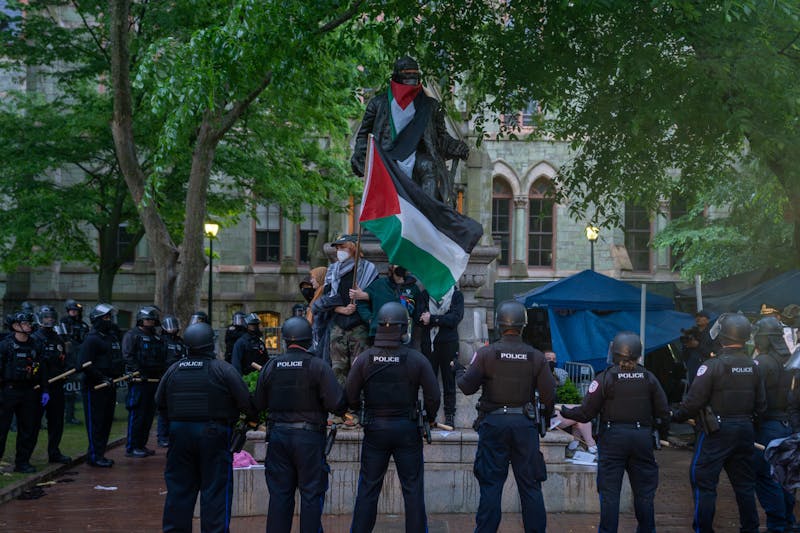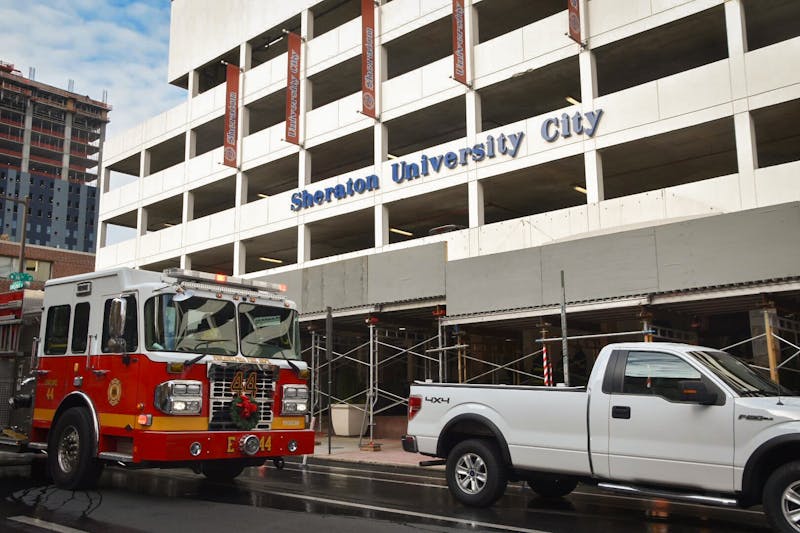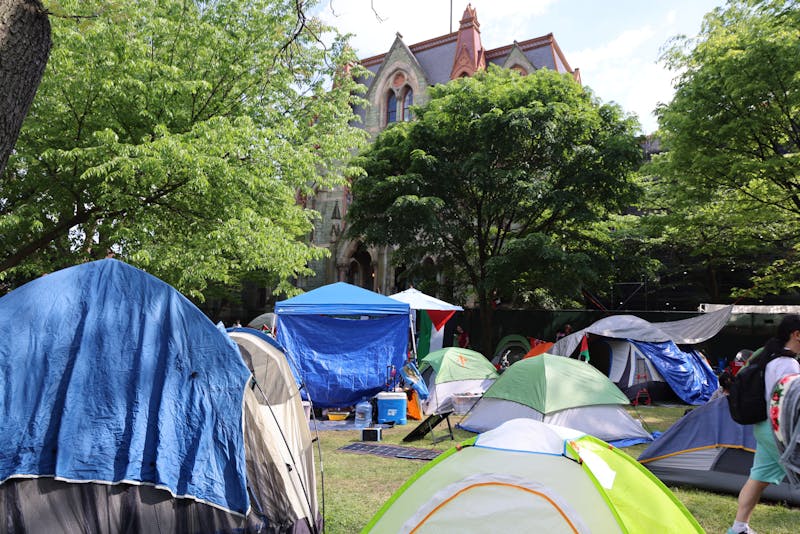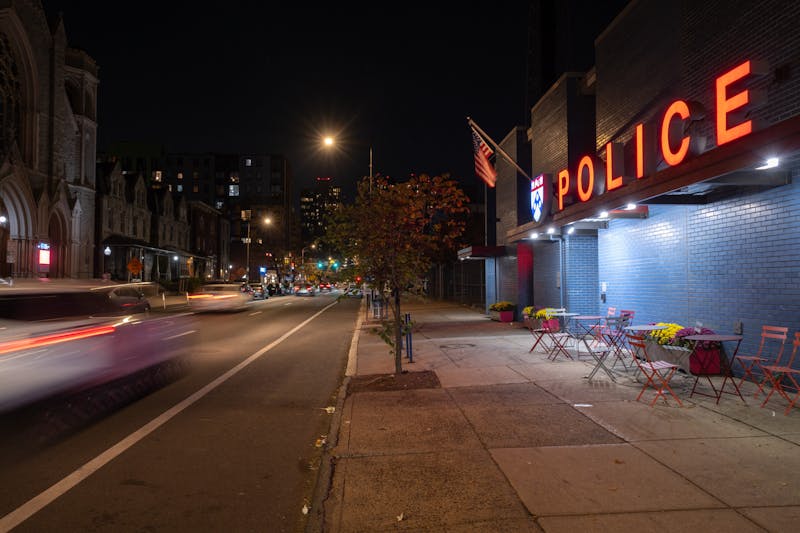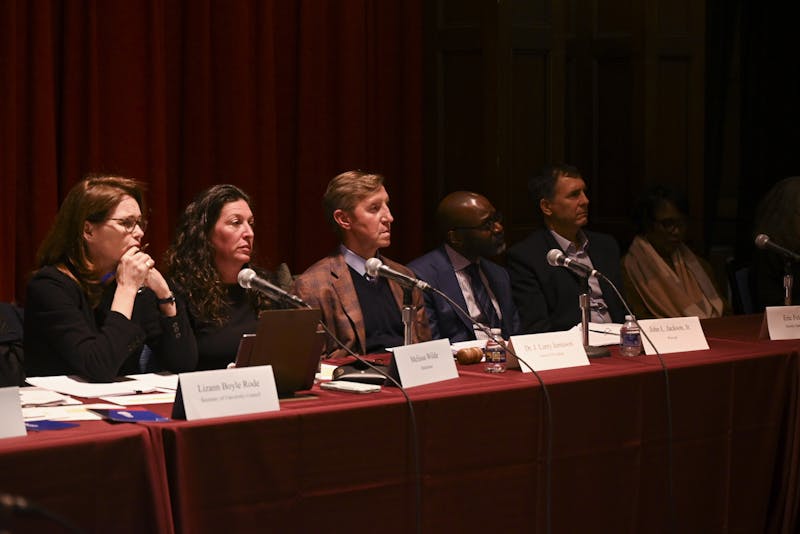
According to a recent review by the Department of Public Safety Advisory Board’s ad hoc committee on search warrant execution, Penn Police followed all legal and procedural guidelines when executing a search warrant at an off-campus residence belonging to student activists.
Credit: Abhiram JuvvadiAn ad hoc committee of Penn’s Division of Public Safety Advisory Board concluded that Penn Police Department followed all legal and procedural guidelines when executing a search warrant at an off-campus residence that belonged to pro-Palestinian student activists in October.
The ad hoc committee was formed at the request of Senior Executive Vice President Craig Carnaroli and Vice President for Public Safety Kathleen Shields Anderson to assess “whether all policies and procedures were followed” and if the search warrant execution process needed “recommendations for improvements.” The formation of the committee followed public backlash in response the execution of the October warrant.
A spokesperson for DPS wrote to The Daily Pennsylvanian that they would “like to thank the committee for their dedicated time on the report.”
After reviewing body camera footage, operational policies, and legal guidelines, the committee unanimously found that Penn Police officers acted professionally and within protocol. They also agreed that the officers and detectives acted “with courtesy and professionalism” and that the manner of the search warrant’s execution was “reasonable and appropriate.”
“The committee also observed that officers and detectives followed all rules and policies with respect to the individual who was the subject of the search warrant,” the report stated.
Despite these findings, the committee acknowledged “the impact” caused by the execution of the warrant.
“A police action occurring inside of a home is potentially surprising and unsettling to residents,” the report reads. “While our review of the video shows that officers took steps to minimize disruption, it is impossible to completely remove the potential for discomfort and even fear surrounding this kind of police action.”
The committee also wrote that there is an opportunity for “greater transparency” and for changes that can “help ensure the community’s trust” in the department.
Their report included several “recommendations” to the search warrant execution process including final approval from the vice president for public safety and the chief of police prior to the execution of a search warrant and an annual report from the DPS Advisory Board detailing the number of executed search warrants for the year.
“Our goal with these recommendations is to consolidate oversight of policies, procedures, and training and to encourage the continued consideration of the community impact resulting from police actions,” the statement read.
The ad hoc committee was composed of five members of the larger DPS Advisory Board and met on four occasions, according to the report.
The DP previously reported that three search warrants — one served on Sept. 24, 2024 and two on Oct. 18, 2024 — led to the Oct. 18, 2024 search of the off-campus student residence. The residence was searched in connection with the investigation of the vandalism of the Benjamin Franklin statue on College Green in September 2024.
Penn Police used phone records, digital data, and CCTV footage to investigate the vandalism. Penn Police also electronically served a search warrant to T-Mobile — the student’s cell phone carrier — to request access to “call detail records,” location data, subscriber information, and cloud storage associated with the student’s phone number.
The execution of the warrant sparked concerns among several campus groups.
Penn’s chapter of Faculty for Justice in Palestine started a petition demanding an investigation into the search, a repeal of new protest guidelines, and a vote of no confidence in University administrators. The executive committee of Penn’s chapter of the American Association of University Professors also condemned the University’s actions in a statement published Oct. 26, 2024.
The Daily Pennsylvanian is an independent, student-run newspaper. Please consider making a donation to support the coverage that shapes the University. Your generosity ensures a future of strong journalism at Penn.
Donate







